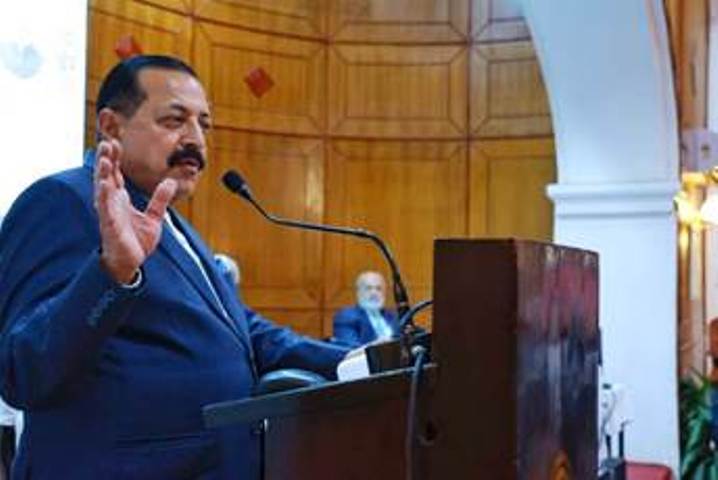India Champions Sustainable Marine Exploration: Dr. Jitendra Singh Felicitates Trainees from Six Nations
Dr. Singh also highlighted how these initiatives contribute to global environmental goals, including those outlined in Agenda 2030 and the Paris Agreement on climate action.

- Country:
- India
In a bold step towards sustainable ocean development, Union Minister Dr Jitendra Singh honoured international trainees from Nigeria, Kenya, Sri Lanka, Tanzania, Ghana, and Jamaica who successfully completed a specialized training program in seabed exploration. Organized in collaboration with the International Seabed Authority (ISA), the event emphasized India’s leadership in promoting environmentally responsible marine exploration and fostering global partnerships.
Promoting International Collaboration and Capacity Building
The ceremony, held at the Ministry of Earth Sciences, New Delhi, celebrated participants trained in polymetallic nodules (PMN) and polymetallic sulphides (PMS) exploration techniques. These critical resources, found on the ocean floor, hold immense economic potential while posing significant environmental challenges.
Dr. Jitendra Singh congratulated the trainees and emphasized the program’s alignment with India’s “Blue Economy” policy, which focuses on the sustainable use of ocean resources for economic growth, job creation, and ecosystem preservation. He called the trainees “ambassadors of a sustainable future,” urging them to use their newfound expertise to champion marine conservation in their home countries.
India’s Principles for Seabed Exploration
Dr. Singh outlined four guiding principles shaping India’s approach to seabed mining:
Sustainable Resource Utilization: Ensuring that seabed minerals benefit humanity at large.
Environmental Protection: Strict adherence to marine ecosystem preservation.
Regulatory Development: Establishing comprehensive seabed mineral regulations.
Alignment with UNCLOS: Ensuring all activities comply with the United Nations Convention on the Law of the Sea (UNCLOS), to which India is a signatory since 1982.
India currently holds two exploration contracts under the ISA, covering PMN and PMS mining. The nation has committed to conducting thorough environmental impact assessments during all exploration and extraction phases, solidifying its reputation as a leader in responsible seabed resource development.
Advanced Training Modules and Global Networking
The training program provided participants with in-depth exposure to:
Deep-sea exploration technologies.
Remote-operated vehicles (ROVs).
Ocean-floor mapping techniques.
Mineral sample analysis and sustainability assessment methods.
Dr. Singh encouraged the trainees to maintain professional networks with Indian scientists, calling this collaboration a pathway to stronger global ties in marine science.
India’s Role in ISA and Global Mentorship
As a key player in the ISA, India has consistently mentored other nations, building capacity for sustainable seabed management. This program is part of a larger effort to foster international goodwill, share technological innovations, and ensure the global adoption of best practices in marine exploration.
Dr. Singh also highlighted how these initiatives contribute to global environmental goals, including those outlined in Agenda 2030 and the Paris Agreement on climate action.
A Vision for the Future
Dr. Singh concluded the event by expressing India’s dedication to global cooperation, stating:
“You are not only scientists but global messengers of ocean conservation. Together, we can shape a sustainable future for marine exploration, ensuring that it benefits both humanity and our planet.”
Senior officials and scientists from the Ministry of Earth Sciences joined the Minister in applauding the trainees’ achievements. The event underscored India’s growing role as a hub for advanced ocean exploration training, reflecting its unwavering commitment to sustainable marine development.
Dr. Singh invited feedback from the trainees to refine India’s training programs further, solidifying the nation’s position as a global leader in ocean science. He also expressed hope that other countries would adopt similar frameworks, creating a unified approach to protecting marine ecosystems while responsibly harnessing their resources.
- READ MORE ON:
- Dr. Jitendra Singh
- International Seabed Authority










